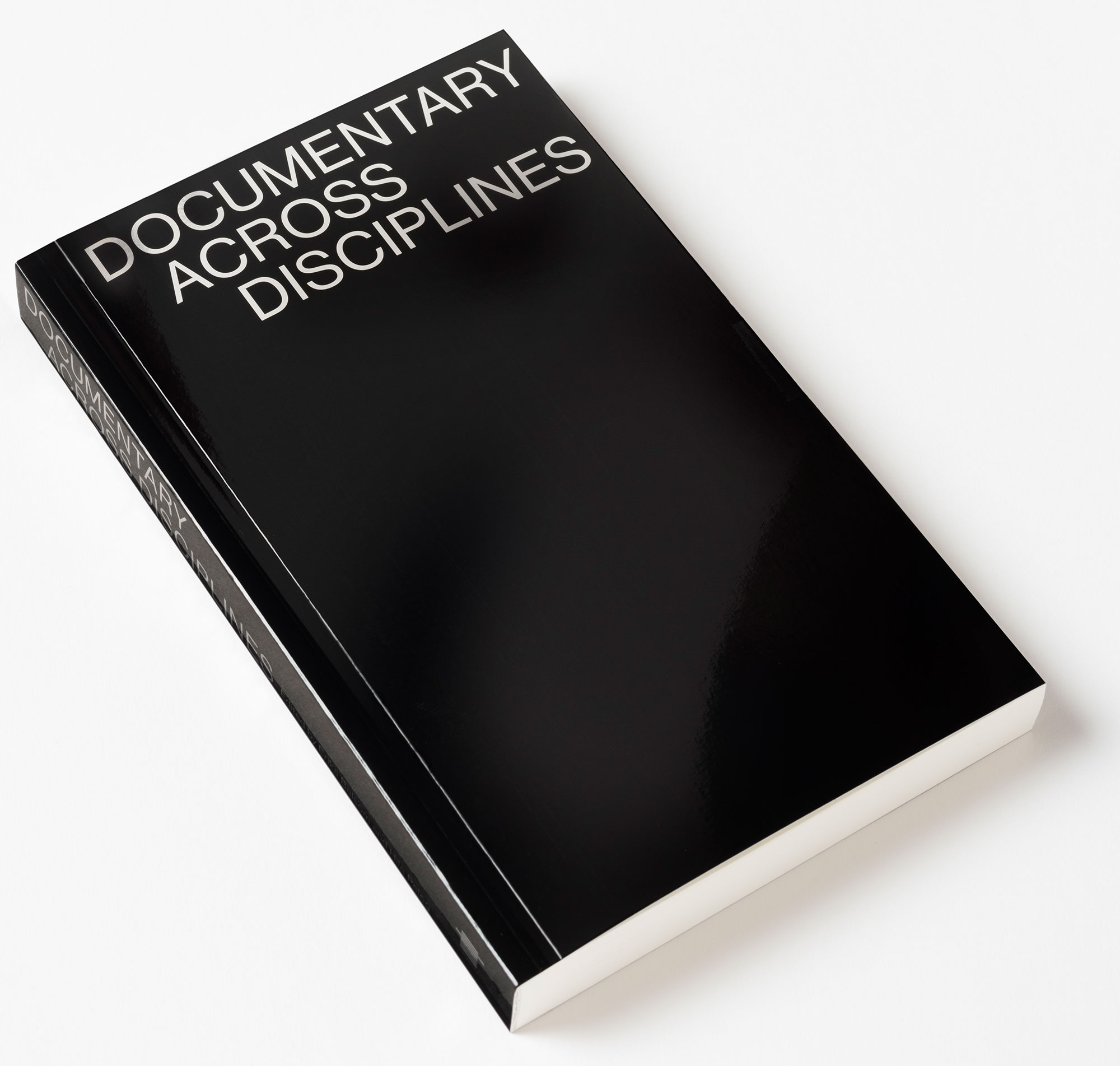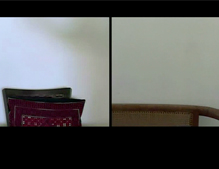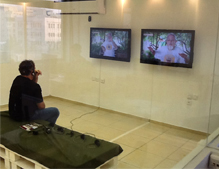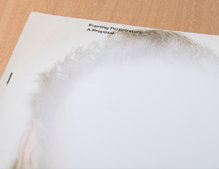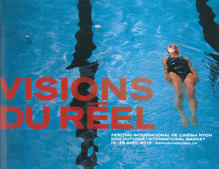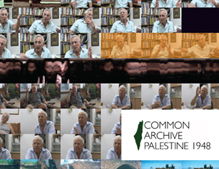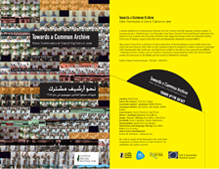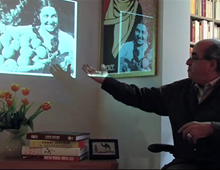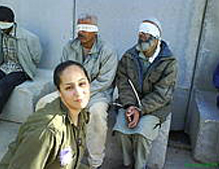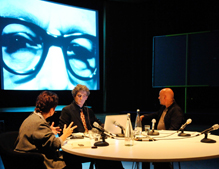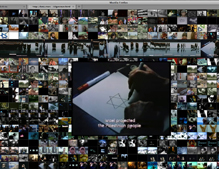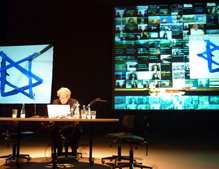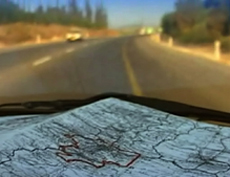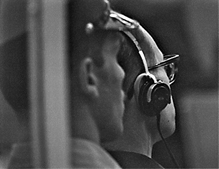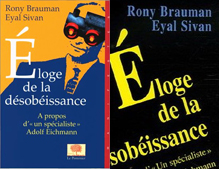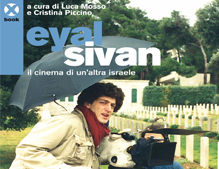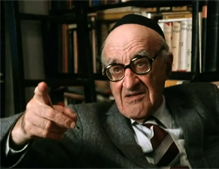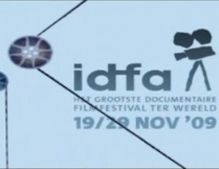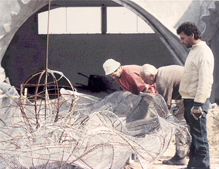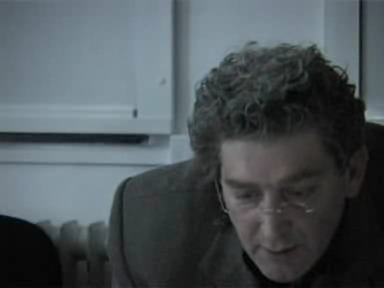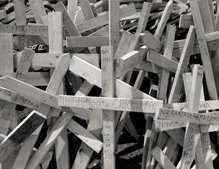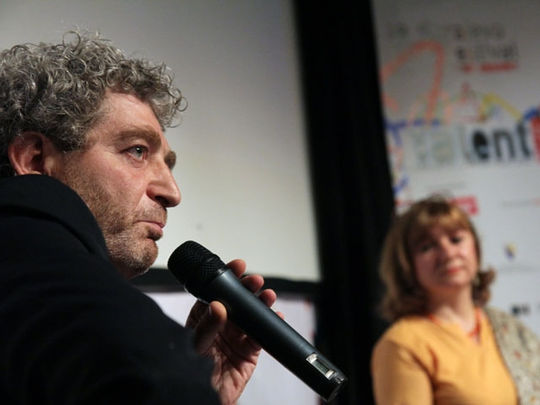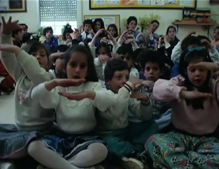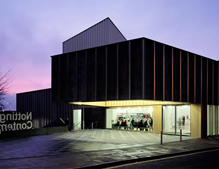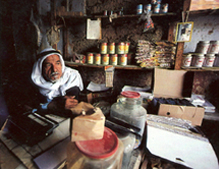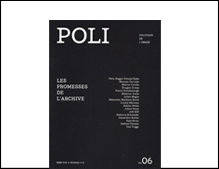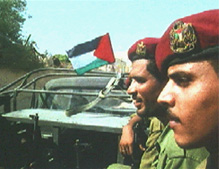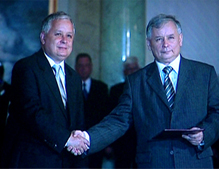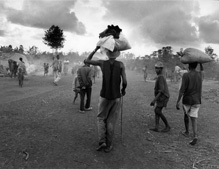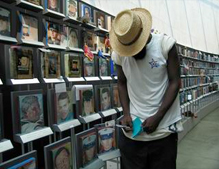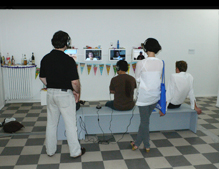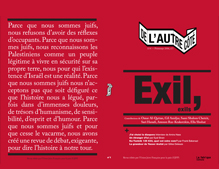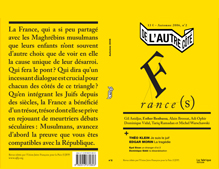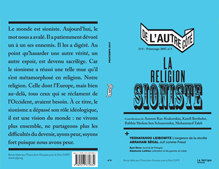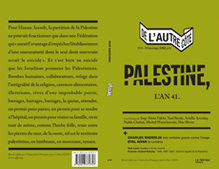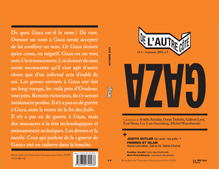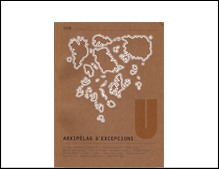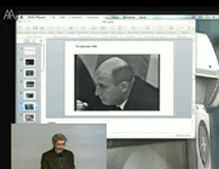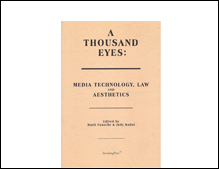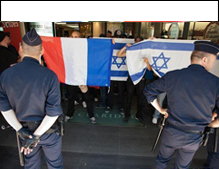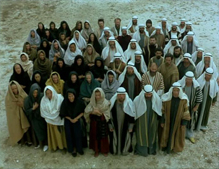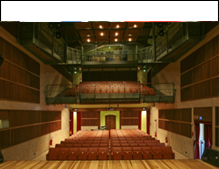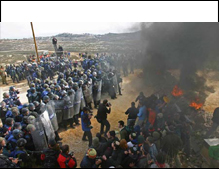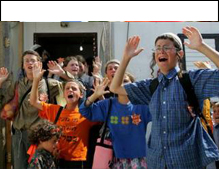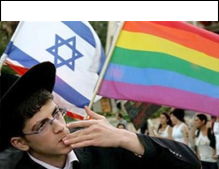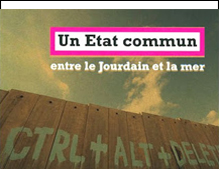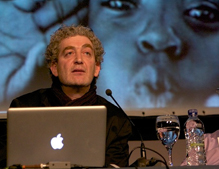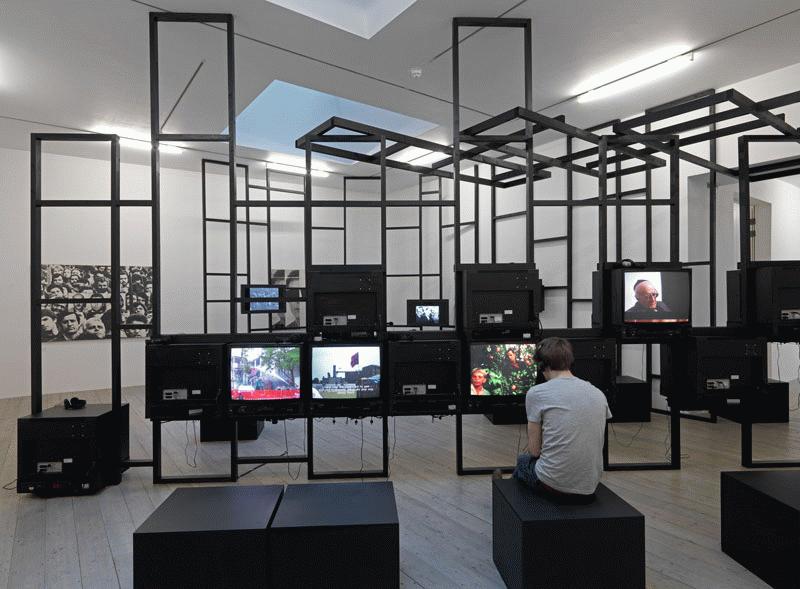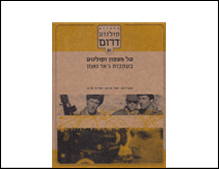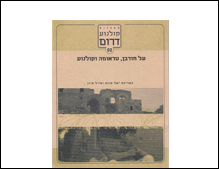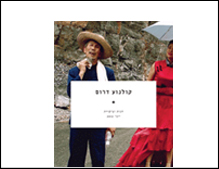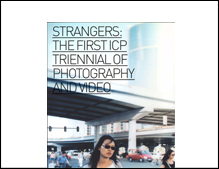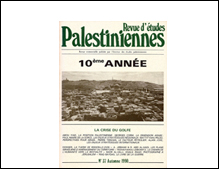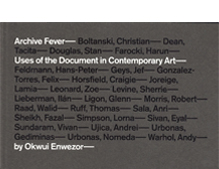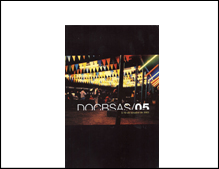-
Proposal for a visual media exhibition
with the participation of students of the Master of Film at the Dutch Film Academy, Amsterdam -
Get my films
Buy DVDs online at www.momento-films.com -
IZKOR
slaves of memory
Documentary film | 1990 | 97 min | color | 16mm | 4:3 | OV Hebrew ST -
Common Archive Palestine 1948
web based cross-reference archive and production platform
www.commonarchives.net/1948 - Project in progress - -
Montage Interdit [forbidden editing]
With professors Ella (Habiba) Shohat and Robert Stam / Berlin Documentary Forum 2 / Haus der Kulturen der Welt / June 2012 -
Route 181
fragments of a journay in Palestine-Israel
Documentary film co-directed with Michel Khleifi | 2003 | 272 min [4.5H] | color | video | 16:9 | OV Arabic, Hebrew ST
-
The Specialist
portrait of a modern criminal
Documentary film | 1999 | co-author Rony Brauman | 128 min | B/W | 4:3 | 35 mm | OV German, Hebrew ST -
Jaffa
the orange's clockwork
Documentary film | 2009 | 88 min | color & B/W | 16:9 | Digital video | OV Arabic, Hebrew, English, French ST
-
Montage Interdit
www.montageinterdit.net
Web-based documentary practice. A production tool, archive and distribution device | project in progress
-
Common State
potential conversation [1]
Documentary film | 2012 | 123 min | color | video | 16:9 split screen | OV Arabic, Hebrew ST -
Towards a common archive
testimonies by Zionist veterans of 1948 war in Palestine
Visual Media exhibition | Zochrot Gallery (Zochrot visual media lab) | Tel-Aviv | October 2012 - January 2013
-
I Love You All
Aus Liebe Zum Volk
Documentary film co-directed with Audrey Maurion | 2004 | 89 minutes | b/w & color | 35mm | OV German, French ST
press
Aqabat-Jaber, Passing through (Variety)
23.09.1987
Aqabat Jaber: Vie de Passage (Aqabat Jaber: Passing Through)
(FRENCH.DOCU-COLOR)
A Dune Vision production. Produced by Thibault de Corday. Written and directed by Eyal Sivan. Camera (coIor), Nurith Aviv; editor, Ruth Schell; sound, Remy Attal. Reviewed at Toronto Festival of Festivals, Sept. 18, 1987. Running time: 80 MINS.
Toronto - As parched and spare as the landscape it chronicles, "Aqabat Jaber: Passing Through" is a coarsely realistic and depressing look at one of the largest Palestinian refugee camps. Strictly for specials houses, pic would fare better as a public broadcasting spec than a theatrical feature.
Aqabat Jaber was set up on the occupied West Bank in 1948 for 65,000 Palestinians who were uprooted from 116 villages. Today there are only 3,000 refugees left. First-lime director Eyal Sivan takes his camera on-site to the remaining inhabitants, most of whom are convinced that they will one day, through political or divine intervention, return to their homeland.
They all express similar sentiment - their land is the very source, they are homesick for their villages and orchards, and feel that Aqabat Jaber is a "temporary situation," although they've been there for 38 years (pic was shot in 1986).
Some refugees welcome the chance to introduce themselves, air their grievances and bemoan their fates; others scorn the filmmakers. Sivan, ever sympathetic to their conditions, extracts detailed life stories from these displaced persons as he pans the daily life at the camps _women baking bread, men sitting around smoking from a hookah, children playing in abandoned baked earth houses.
The United Nations Relief and Works Act, which set up the camp now provides it with a minimal of sustenance every two months. In the summer there's no water.
It's all hopeless and full of despair. Being and nothingness are the watchwords at the camp as well as this docu. Sivan should have established the details of the camp's politics and history at the outset to make the individual stories more accessible to the viewer, instead of saving a paragraph of description for the end. There's no narration or music either.
These people's plights are poignant, but there are too many unanswered questions as to why they're still here, why neighbouring Arab countries didn't take them in, and why their embitterment paralyzes.
Devo.
(FRENCH.DOCU-COLOR)
A Dune Vision production. Produced by Thibault de Corday. Written and directed by Eyal Sivan. Camera (coIor), Nurith Aviv; editor, Ruth Schell; sound, Remy Attal. Reviewed at Toronto Festival of Festivals, Sept. 18, 1987. Running time: 80 MINS.
Toronto - As parched and spare as the landscape it chronicles, "Aqabat Jaber: Passing Through" is a coarsely realistic and depressing look at one of the largest Palestinian refugee camps. Strictly for specials houses, pic would fare better as a public broadcasting spec than a theatrical feature.
Aqabat Jaber was set up on the occupied West Bank in 1948 for 65,000 Palestinians who were uprooted from 116 villages. Today there are only 3,000 refugees left. First-lime director Eyal Sivan takes his camera on-site to the remaining inhabitants, most of whom are convinced that they will one day, through political or divine intervention, return to their homeland.
They all express similar sentiment - their land is the very source, they are homesick for their villages and orchards, and feel that Aqabat Jaber is a "temporary situation," although they've been there for 38 years (pic was shot in 1986).
Some refugees welcome the chance to introduce themselves, air their grievances and bemoan their fates; others scorn the filmmakers. Sivan, ever sympathetic to their conditions, extracts detailed life stories from these displaced persons as he pans the daily life at the camps _women baking bread, men sitting around smoking from a hookah, children playing in abandoned baked earth houses.
The United Nations Relief and Works Act, which set up the camp now provides it with a minimal of sustenance every two months. In the summer there's no water.
It's all hopeless and full of despair. Being and nothingness are the watchwords at the camp as well as this docu. Sivan should have established the details of the camp's politics and history at the outset to make the individual stories more accessible to the viewer, instead of saving a paragraph of description for the end. There's no narration or music either.
These people's plights are poignant, but there are too many unanswered questions as to why they're still here, why neighbouring Arab countries didn't take them in, and why their embitterment paralyzes.
Devo.

